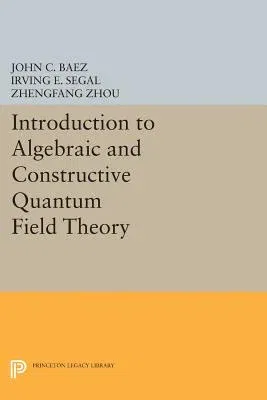The authors present a rigorous treatment of the first principles of the
algebraic and analytic core of quantum field theory. Their aim is to
correlate modern mathematical theory with the explanation of the
observed process of particle production and of particle-wave duality
that heuristic quantum field theory provides. Many topics are treated
here in book form for the first time, from the origins of complex
structures to the quantization of tachyons and domains of dependence for
quantized wave equations. This work begins with a comprehensive
analysis, in a universal format, of the structure and characterization
of free fields, which is illustrated by applications to specific fields.
Nonlinear local functions of both free fields (or Wick products) and
interacting fields are established mathematically in a way that is
consistent with the basic physical constraints and practice. Among other
topics discussed are functional integration, Fourier transforms in
Hilbert space, and implementability of canonical transformations. The
authors address readers interested in fundamental mathematical physics
and who have at least the training of an entering graduate student. A
series of lexicons connects the mathematical development with the
underlying physical motivation or interpretation. The examples and
problems illustrate the theory and relate it to the scientific
literature.
Originally published in 1992.
The Princeton Legacy Library uses the latest print-on-demand
technology to again make available previously out-of-print books from
the distinguished backlist of Princeton University Press. These editions
preserve the original texts of these important books while presenting
them in durable paperback and hardcover editions. The goal of the
Princeton Legacy Library is to vastly increase access to the rich
scholarly heritage found in the thousands of books published by
Princeton University Press since its founding in 1905.

